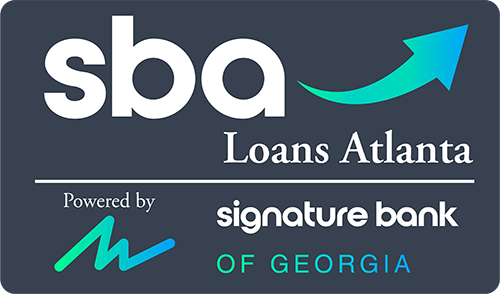There are many benefits to investing in stocks. The main one being that it’s quite lucrative. For example, $8000 invested into the S&P 500 index in 1980 would be worth around $780,000 in 2021 (even when accounting for inflation).
That’s a return on investment (ROI) of 9688%!
But investing in the stock market isn’t without its downfalls, and most of it has to do with user error. Let’s look at 8 of the most common investing mistakes, so you can avoid them and stay profitable on your investment path.
1. Don’t Invest Based on Emotions
If you bring emotion into building an investment strategy, you are not investing anymore, but gambling with your precious money. Try, as much as possible, to keep emotions out when investing.
This way, you will be able to make objective decisions about what to do with your money. And you won’t keep your money in an investment that you get overly attached to, just because of some precious childhood memories.
2. Don’t Avoid Taking Some Risk with Your Money
Taking risks in investments is important and cannot be avoided. No matter what the market has done in the past, that doesn’t mean that the future can be predicted. The pandemic of 2021 has shown us this quite well.
BUT, this doesn’t mean that you start sitting on the sidelines and avoiding investing your money into anything beyond safe government bonds.
3. Don’t Invest More Than You Can Afford
Are you taking out loans to invest in cryptocurrency? Or are you investing more than you can afford because you think it’s a great time to invest and you want to take advantage of the market lull?
Whatever you do, never invest money that you can’t afford to lose. You have no idea where the market will go in the future.
Also, if you are going to be retiring soon, you want to ensure that you have at least some money in cash. This will tide you over in case the market goes sour.
4. Don’t Overly Focus On One Sector or Company in Your Portfolio
Diversify, diversify, diversity, but not too much. This is the Goldilocks’ rule of investing. Always make sure you are not overly focused on one company or sector (technology, for example) in your portfolio.
BUT, don’t go overboard and invest in too many different little companies, and investments. Find a balance that works for you and stick to it.
5. Don’t Try to Time the Market
Do you think you are the next Warren Buffet, and you ‘know’ when is the right time to invest in the market? Not even Warren Buffet tries to do that with his investments. Instead, he focuses on solid long-term companies.
Every newbie investor believes they can time the market, but the truth of the matter is you are better off using dollar-cost averaging and investing a little bit every month.
This way, you will end up buying stocks both when they are high and when they are low, averaging out your investment costs. This reduces the impact of volatility on your overall investment.
You can never be smarter than the market, so don’t try to be.
6. Don’t Invest in Businesses or Investments You Don’t Understand
There are many different types of investments, but there’s no point in investing in something you don’t understand the long-term consequences of.
Many people are investing in cryptocurrency right now without having any idea what the investment is all about and how risky it can be. The same applies to any other investment that you don’t understand.
Invest into companies you know and trust, and whose business model you have taken the time to study. This doesn’t mean you need to become an expert on all the companies you invest in, but a bit of study is necessary.
7. Don’t Ignore the Impact of Taxes
There are four places where you have to remember the impact of taxes on your investment. These are:
- While gift-giving
- While buying or selling investments
- While developing your financial strategy
- While establishing your estate or will
Remember the federal government taxes dividends, investment income, interest, rent on real estate, and capital gains. And they are all taxes at different rates depending on your tax bracket.
You also need to take into account taxes when you think about what tax bracket you would be in, once you retire.
8. Don’t Follow the Crowd When Investing
Remember your mother’s advice when it comes to building an investment strategy. Just because everyone else is doing it, doesn’t mean it’s a good idea.
In fact, with the stock market, that might mean you should stay far away from that particular investment for now, as it might be overpriced.
Maybe it would be a better idea to follow another investment adage – unfollow the crowd, go where the crowds aren’t going, and invest in stocks that are priced lower than their counterparts.
Of course, no one rule fits all here. As you invest in different types of investments, you will start learning how the market works (at least somewhat) and you will be able to make better decisions.
Remember, you will never be able to avoid all investment mistakes, but you can become savvier as time goes on and stop repeating the same mistakes and grow your money.
Common Investing Mistakes to Avoid
As seen above, these are the most common investing mistakes to avoid as a beginner or expert investor. But this list is not all-encompassing. As you learn and grow as an investor, you will add your own mistakes to the pot.
Meanwhile, if you are interested in hiring some great wealth advisors who will help plan and implement a suitable investment strategy for you, check out our Signature Bank of Georgia wealth management partners, Paces Ferry Wealth Advisors, today!
Note: Investment advisory services offered through Paces Ferry Wealth Advisors, LLC, a Registered Investment Advisor with the U.S. Securities and Exchange Commission. This material is intended for informational purposes only. It should not be construed as legal or tax advice and is not intended to replace the advice of a qualified attorney or tax advisor. This information is not an offer or a solicitation to buy or sell securities. Paces Ferry Wealth Advisors, LLC and Signature Bank are not affiliated companies.
Products offered by the Advisors are not insured by the Federal Deposit Insurance Corporation and is not a deposit or other obligation of, or guaranteed by, the bank. Investment products are subject to risks, including possible loss of the principal amount invested.


